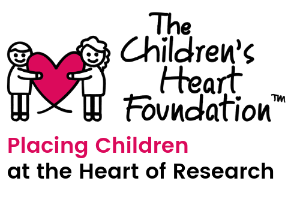Autism and its Signs
In a world where you can be anything…BE KIND
SOURCE: Autism Speaks Website / https://www.autismspeaks.org/
Autism, or autism spectrum disorder (ASD), refers to a broad range of conditions characterized by challenges with social skills, repetitive behaviors, speech and nonverbal communication. According to the Centers for Disease Control, autism affects an estimated 1 in 44 children in the United States today.
We know that there is not one autism but many subtypes, most influenced by a combination of genetic and environmental factors. Because autism is a spectrum disorder, each person with autism has a distinct set of strengths and challenges. The ways in which people with autism learn, think and problem-solve can range from highly skilled to severely challenged. Some people with ASD may require significant support in their daily lives, while others may need less support and, in some cases, live entirely independently.
Several factors may influence the development of autism, and it is often accompanied by sensory sensitivities and medical issues such as gastrointestinal (GI) disorders, seizures or sleep disorders, as well as mental health challenges such as anxiety, depression and attention issues.





Signs of autism usually appear by age 2 or 3. Some associated development delays can appear even earlier, and often, it can be diagnosed as early as 18 months. Research shows that early intervention leads to positive outcomes later in life for people with autism.
* In 2013, the American Psychiatric Association merged four distinct autism diagnoses into one umbrella diagnosis of autism spectrum disorder (ASD). They included autistic disorder, childhood disintegrative disorder, pervasive developmental disorder-not otherwise specified (PDD-NOS) and Asperger syndrome.
One of the most important things you can do as a parent or caregiver is to learn the early signs of autism and become familiar with the typical developmental milestones that your child should be reaching.
The following may indicate your child is at risk for an autism spectrum disorder. If your child exhibits any of the following, ask your pediatrician or family doctor for an evaluation right away:
By 6 months
Few or no big smiles or other warm, joyful and engaging expressions
Limited or no eye contact
By 9 months
Little or no back-and-forth sharing of sounds, smiles or other facial expressions
By 12 months
Little or no babbling
Little or no back-and-forth gestures such as pointing, showing, reaching or waving
Little or no response to name
By 16 months
Very few or no words
By 24 months
Very few or no meaningful, two-word phrases (not including imitating or repeating)
At any age
Loss of previously acquired speech, babbling or social skills
Avoidance of eye contact
Persistent preference for solitude
Difficulty understanding other people’s feelings
Delayed language development
Persistent repetition of words or phrases (echolalia)
Resistance to minor changes in routine or surroundings
Restricted interests
Repetitive behaviors (flapping, rocking, spinning, etc.)
Unusual and intense reactions to sounds, smells, tastes, textures, lights and/or colors
If you have concerns, get your child screened and contact your healthcare provider.
The M-CHAT (Modified Checklist for Autism in Toddlers ™) can help you determine if a professional should evaluate your child. This simple online autism screen, available on our website, takes only a few minutes. If the answers suggest your child has a high probability for autism, please consult with your child’s doctor. Likewise, if you have any other concerns about your child’s development, don’t wait. Speak to your doctor now about screening your child for autism.
Resources
A diagnosis of autism is an important turning point in a long journey to understand your child’s world. Autism Speaks has many resources for families whose children have recently received a diagnosis.
These include Autism Speaks First Concern to Action Tool Kit and First Concern to Action Roadmap.
Are you an adult or teen?
Do you suspect that your feelings and behaviors involve autism? Many people who have milder forms of autism go undiagnosed until adulthood. Find out more in our guide: “Is it Autism and If So, What Next?”
Please visit Treatment of Autism and our Directory for more information. Have more questions? Autism Speaks’ Autism Response Team can help you with information, resources and opportunities. Call us at 888-288-4762 (en Español 888-772-9050) or email [email protected].


